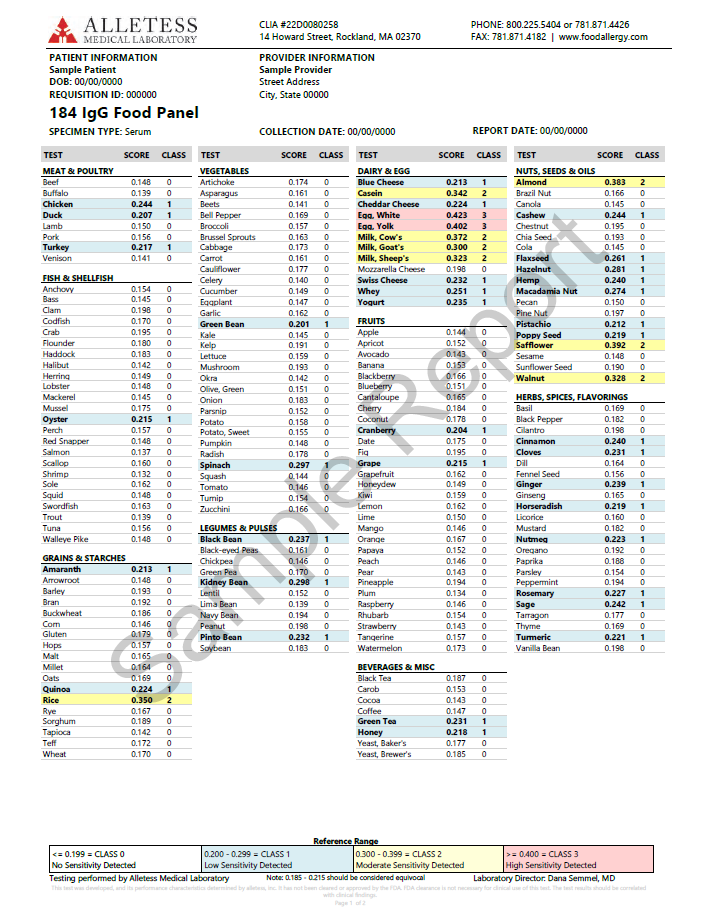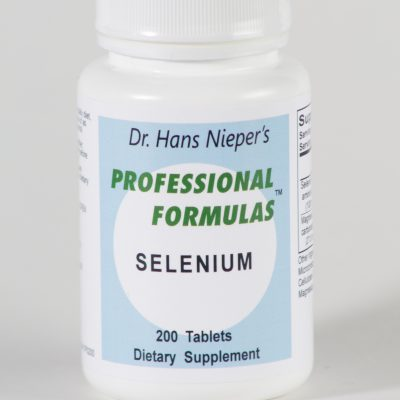
Table of Contents
Understanding Fatigue vs. Burnout: A Comprehensive Guide
In our fast-paced world, fatigue or burnout have become common experiences. While many people may use these terms interchangeably, they signify different states of physical and mental health. This guide will delve deep into what fatigue and burnout are, their symptoms, causes, and the key differences between them, and offer strategies to manage and recover from both. By understanding these concepts, you can take proactive steps towards rejuvenation and well-being.
What is Fatigue?
Definition and Symptoms
Fatigue is a physical state characterized by a lack of energy and motivation. It can affect your ability to perform daily activities and may manifest as persistent tiredness, weakness, or lethargy. Symptoms often include difficulty concentrating, irritability, and physical exhaustion, even after adequate rest. Unlike mere tiredness, fatigue can linger, making it essential to identify its underlying causes.
Common Causes of Fatigue
Fatigue can stem from various sources, both physical and psychological. Common causes include insufficient sleep, poor nutrition, dehydration, and lack of exercise. Chronic conditions such as anemia, thyroid issues, and sleep apnea may also contribute. Additionally, emotional factors like stress and anxiety can exacerbate feelings of fatigue. Understanding the root cause is crucial for effective management.
What is Burnout?
Definition and Symptoms
Burnout is a state of emotional, physical, and mental exhaustion caused by prolonged and excessive stress. It often occurs in the workplace but can also arise from personal life challenges. Symptoms include feelings of cynicism, detachment, decreased performance, and a sense of hopelessness. Unlike fatigue, which can be a temporary condition, burnout is typically chronic and requires more targeted intervention.
Common Causes of Burnout
The causes of burnout often revolve around overwhelming workloads, lack of support, and unrealistic expectations. Other contributing factors include a poor work-life balance, insufficient resources, and a lack of control over one’s workload or work environment. Identifying these triggers is essential for preventing burnout and fostering a healthier lifestyle.
Fatigue vs. Burnout: Key Differences
Physical or Mental Exhaustion
A fundamental difference between fatigue and burnout lies in their nature. Fatigue is primarily a physical condition, often linked to bodily exertion or illness. In contrast, burnout is predominantly mental and emotional. While fatigue may be relieved with rest and nutrition, burnout requires more comprehensive approaches, including emotional and psychological support. A few restful nights of deep sleep won’t cure the persistent kind of fatigue known as burnout. Since they know that sleeping won’t solve their problems, many burnout sufferers actually just continue taking stimulants and getting little sleep.
Recovery Strategies for Each
Recovering from fatigue often involves simple lifestyle adjustments, such as improving sleep habits, enhancing nutrition, and incorporating regular exercise. For burnout, however, recovery may necessitate a more profound transformation, including setting boundaries, seeking social support, and possibly professional counseling to address the emotional toll. The nutrition plans offered by Analytical Research Labs or by Trace Elements are made especially to rebuild and revitalize an individual’s energy system. It’s critical to understand that this has a very different focus from the majority of nutrition programs, which are primarily focused on symptom correction.
Nutritional Aspects of Fatigue and Burnout
Essential Nutrients for Energy
Nutrition plays a vital role in combating both fatigue and burnout. Key nutrients such as iron, vitamin B12, magnesium, and omega-3 fatty acids are crucial for energy production and overall mental health. Incorporating foods rich in these nutrients—like leafy greens, nuts, seeds, and fatty fish—can help you feel more energetic and resilient.
A unique feature of the Analytical Research Labs nutrition program or Trace Elements are they always address two key aspects of the body’s energy system. These are the oxidation rate and the energy pathway. The oxidation rate has to do with the rate of all chemical reactions in the body, and is intimately related to thyroid and adrenal glandular activity and the balance of the sympathetic and parasympathetic nervous systems.
The processes needed for food to be broken down, absorbed, metabolized in the liver, and then used by the cells as ATP (adenosine triphosphate) are collectively referred to as the energy pathway.
Enough digestive enzymes, liver detoxification, appropriate cell permeability, and sufficient concentrations of numerous nutrients are needed for this energy pathway. Toxic chemicals, metals, infections, and other obstructions that harm the pathway must also be eliminated. Both aspects are addressed by the Analytical Research Labs and Trace Elements.
Foods to Avoid for Optimal Wellness
Just as certain foods can boost your energy levels, others can deplete them. Processed foods high in sugar and unhealthy fats can lead to energy crashes. Caffeine, while it may provide a temporary boost, can worsen the cycle of fatigue and burnout if consumed excessively. It’s essential to focus on a balanced diet that supports sustained energy levels.
The Role of Hair Testing
What is a Hair Test?
Hair testing is an analytical method used to measure trace elements and nutritional deficiencies in the body. Unlike blood tests, hair testing can provide a long-term view of nutrient levels, as hair growth reflects a period of several months.
How Hair Tests Can Reveal Nutritional Deficiencies
Understanding nutritional deficiencies through hair testing can guide dietary changes and supplementation. For instance, low levels of magnesium found in a hair sample may indicate a need for increased intake of nuts and seeds, which can alleviate fatigue and contribute to overall well-being.
Lifestyle Changes to Combat Fatigue and Burnout
Importance of Sleep Hygiene
Establishing good sleep hygiene is foundational for combating both fatigue and burnout. This includes setting a consistent sleep schedule, creating a conducive sleeping environment, and minimizing screen time before bed. Quality sleep allows your body to recover physically and mentally, thereby reducing feelings of exhaustion.
Exercise: Finding Your Balance
Regular physical activity is essential but must be balanced with your body’s needs. While exercise can boost energy and improve mood, overexertion can lead to fatigue. Aim for a blend of aerobic activities, strength training, and flexibility exercises to cultivate physical resilience without overwhelming yourself.
Mindfulness and Relaxation Techniques
Incorporating mindfulness and relaxation techniques can be instrumental in reducing stress levels and preventing burnout. Practices such as meditation, yoga, and deep-breathing exercises can help center your mind and body, making it easier to cope with daily challenges. Even a few minutes each day can make a difference.
Detoxification: A Path to Recovery
Understanding Detoxification
Detoxification is the process of eliminating toxins from the body to promote health and vitality. While the body naturally detoxifies through organs like the liver and kidneys, external factors—such as diet and lifestyle—can enhance or hinder this process. A proper detox can rejuvenate your system and address fatigue and burnout symptoms.
Safe Detox Methods to Try
Effective detox methods include drinking plenty of water, consuming a diet rich in fruits and vegetables, and avoiding processed or unhealthy foods. Herbal teas and supplements may also support detoxification. Always consult a healthcare professional before embarking on a detox regimen to ensure it aligns with your health needs.
Mental and Emotional Factors
The Impact of Stress on Fatigue and Burnout
Stress is a significant contributor to both fatigue and burnout. Chronic stress can wear down your mental resilience, leading to feelings of exhaustion and disillusionment. Addressing stress through effective management techniques—like time management and setting realistic goals—can alleviate its impact and promote overall well-being.
Strategies for Emotional Resilience
Building emotional resilience is vital in combating both fatigue and burnout. Cultivating a supportive social network, practicing self-compassion, and engaging in hobbies can help maintain a positive outlook. Therapy or counseling may also be beneficial for processing feelings and developing coping strategies for stress.
Conclusion: Finding Your Balance
Empowering Yourself Against Fatigue and Burnout
Recognizing the differences between fatigue and burnout is the first step toward recovery. By implementing lifestyle changes, improving nutrition, and managing stress, you can empower yourself to combat these conditions effectively. Remember, it’s essential to listen to your body and mind, seeking help when needed to foster a balanced and healthy life.
Final Thoughts and Encouragement
Fatigue and burnout are challenges that many face, but understanding them can promote healing and resilience. Embrace the journey towards better health, and remember that small changes can lead to significant improvements. Your well-being is worth the effort, so take the time to care for yourself holistically.
FAQ’s About Fatigue and Burnout
What can cause extreme tiredness?
Extreme tiredness can be caused by several factors, including:
Sleep disorders (e.g., insomnia, sleep apnea)
Chronic fatigue syndrome
Anemia
Depression or anxiety
Poor diet or nutrient deficiencies
Sedentary lifestyle
Overexertion or lack of rest
Medical conditions (e.g., thyroid issues, diabetes)
Medications (e.g., sedatives, antidepressants)
Alcohol or substance abuse
Consult a healthcare professional for an accurate diagnosis and treatment options.
Why do I feel fatigue all the time?
Fatigue can be caused by various factors, including lack of sleep, stress, poor diet, or underlying medical conditions. I suggest speaking with a healthcare professional to identify the root cause and develop an appropriate treatment plan.
How to treat tiredness?
Improve sleep quality: Aim for 7-9 hours of quality sleep each night.
Stay hydrated: Drink plenty of water throughout the day.
Eat a balanced diet: Incorporate fruits, vegetables, whole grains, and lean proteins.
Exercise regularly: Engage in at least 150 minutes of moderate exercise weekly.
Manage stress: Practice relaxation techniques like meditation or deep breathing.
Limit caffeine and alcohol: Reduce intake to avoid disruptions in sleep patterns.
Take breaks: Incorporate short breaks during work or study sessions.
Seek medical advice: Consult a healthcare professional if tiredness persists.
What are the 3 types of fatigue?
Muscular, mental, and physical.
What are the main differences between fatigue and burnout?
Fatigue is primarily physical exhaustion, while burnout encompasses emotional, mental, and physical exhaustion often linked to prolonged stress. Recovery strategies differ, with fatigue typically alleviated by rest and nutrition, while burnout may require more extensive lifestyle changes and emotional support.
Can diet affect my energy levels?
Yes, your diet plays a crucial role in determining your energy levels. Consuming nutrient-dense foods helps maintain stable energy, while processed foods can lead to energy crashes. Ensuring you have adequate vitamins and minerals is key to sustaining energy. Doing a hair analysis with one of the tests below can help you with a diet plan and necessary supplements.
Is detoxification beneficial for fatigue and burnout?
Yes, detoxification can be beneficial as it helps eliminate toxins from your body, promoting better health and energy levels. However, it’s essential to approach detox safely and consult with a healthcare professional for personalized advice.
What role does stress play in fatigue and burnout?
Chronic stress is a significant contributor to both fatigue and burnout, as it can exhaust mental and physical resources. Effective stress management techniques can help mitigate its effects and improve overall resilience.
How can I improve my sleep hygiene?
Improving sleep hygiene involves setting a regular sleep schedule, creating a conducive sleeping environment, minimizing caffeine intake, and reducing screen time before bed. These practices help to enhance sleep quality and overall well-being.
Products
At Home Tests
-
←→

Ayumetrix Thyroid Blood Spot Test
$135.00Ayumetrix Thyroid Blood Spot Test for TSH, fT3, fT4, TPO, provides an assessment of thyroid function.- Buy 2 at $130.00
Ayumetrix Thyroid Blood Spot Test
$135.00Successfully Added to your Shopping CartAdding to Cart... -
←→

Analytical Research Labs Hair Test
$179.00$149.00Price during Father's Week Only
Providing a mineral blueprint of one’s biochemistry, an Analytical Research Labs Hair Minerals Test reports levels of minerals and heavy metals in your body giving possible reasons for your symptoms, with suggestions for nutritional supplements and diet changes. Hair tissue mineral analysis can provide pertinent information about balanced nutrition, one’s metabolic rate, energy levels, sugar and carbohydrate tolerance, stage of stress, immune system and glandular activity.- Buy 2 at $145.00
Analytical Research Labs Hair Test
$179.00 $149.00Successfully Added to your Shopping CartAdding to Cart... -
←→

Trace Elements Nutritional Deficiencies Hair Test
$188.00 $148.00Successfully Added to your Shopping CartAdding to Cart... -
←→

Alletess Food Allergy Sensitivity Test
$269.00$224.00Food sensitivities may be causing many of your health issues. Test now with this convenient at home test; no lab visit required.Alletess Food Allergy Sensitivity Test
$269.00 $224.00Successfully Added to your Shopping CartAdding to Cart...
Natural Supplements to Fight Fatigue
-
←→

Membrane Complex
Supplements, Mineral Supplements, Heart Solutions, Immune System Supplements, Skin Solutions, Digestive Aids, Bone Solutions, Lung Solutions, Muscle Solutions$15.00Successfully Added to your Shopping CartAdding to Cart... -
←→

Zinc Arginate with Aspartate
Supplements, Mineral Supplements, Immune System Supplements, Skin Solutions, Immune System Solutions$8.10Successfully Added to your Shopping CartAdding to Cart... -
←→

Buffered C with Calcium, Magnesium & Potassium
Supplements, Vitamin Supplements, Immune System Supplements, Skin Solutions, Constipation Solutions, Cancer Solutions$11.70Successfully Added to your Shopping CartAdding to Cart... -
←→

Selenium
Supplements, Mineral Supplements, Immune System Supplements, Heart Solutions, Immune System Solutions, Hormone Solutions$13.10Successfully Added to your Shopping CartAdding to Cart...


interesting for a very long time
_________________
You can certainly see your skills within the work you write.
The arena hopes for more passionate writers like you who aren’t afraid to
say how they believe. At all times go after your heart.